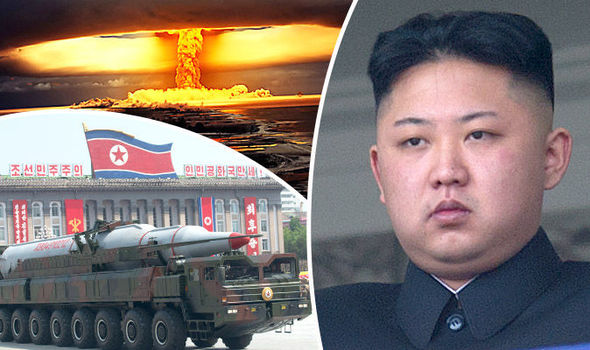Iran and North Korea: Why Donald Trump Has Made Nuclear War More Likely, According to a Former Defense Secretary
By Josh Lowe On 10/11/17 at 11:35 AM
William Perry has spent much of his career professionally worried about the possibility of nuclear war.
Before a stint as the 19th U.S. secretary of defense under President Bill Clinton, Perry frequently advised the government on national security during the Cold War. He was on the team that analyzed surveillance photos exposing the Soviet Union’s installation of nuclear armed missiles in Cuba in October 1962, during the Cuban missile crisis.
When the Cold War ended, says Perry, now 90, he thought the threat of imminent nuclear catastrophe would recede. But he was wrong. It’s now worse than ever, he says, citing the return of tensions between Russia and the U.S., alongside new threats of regional nuclear conflict, such as one between India and Pakistan. He set up his organization, the Perry Project, “to educate and engage the public on nuclear danger.”
And now there’s Donald Trump. “I think the probability of war has increased since January, partly because of actions that President Trump has taken or not taken,” Perry tells Newsweek.
Perry’s comments, made in an interview on the sidelines of the International Luxembourg Forum on Preventing Nuclear Catastrophe, come as Trump is facing two escalating international situations with a nuclear dimension—the future of America’s nuclear agreement with Iran and the escalating rhetoric between the U.S. and North Korea.
On Iran, Perry is clear. “If the deal were abandoned, I think it’s quite clear that Iran will resume the nuclear program that they had before the deal was signed,” he says. “There will be no better deal, there will be no other deal. We will have either that deal or no deal at all.”
Media reports have suggested that Trump will fail to recertify the deal before an October 15 deadline, a move that would not automatically end it, provided that Congress does not decide to impose new sanctions on Iran.
But, says Perry, a presidential commitment to the deal is still important. “It’s not only a bad idea in terms of what it might do relative to Iran in particular.… I think it sends a very bad statement...[with] the United States not being willing to support diplomatic agreements that it has made in good faith.”
A longtime proponent of the Iran deal, Perry says it has gone "a long way to taking the danger away from a war with Iran. We don’t want to be in the position with Iran seven years from now that we are today with North Korea.”
Meanwhile, Perry says the world runs the risk of “blundering” into nuclear catastrophe over North Korea.
“And the blundering, it seems to me, is made more dangerous, more possible, by the inflammatory rhetoric between Kim Jong Un and President Trump, and so I think the rhetoric that the president is using is creating the danger that one side or the other will react.”
He adds, “I think it’s clear that the president does not have experience in international diplomacy, or in dealing with national security issues.”
But, he says, there is some hope. “He does have some very seasoned and cautious people in positions of responsibility in his administration…. The issue here, really, is will President Trump accept the guidance and the counsel of [Defense Secretary James] Mattis and [Secretary of State Rex] Tillerson and [National Security Adviser H.R.] McMaster.”

No comments:
Post a Comment